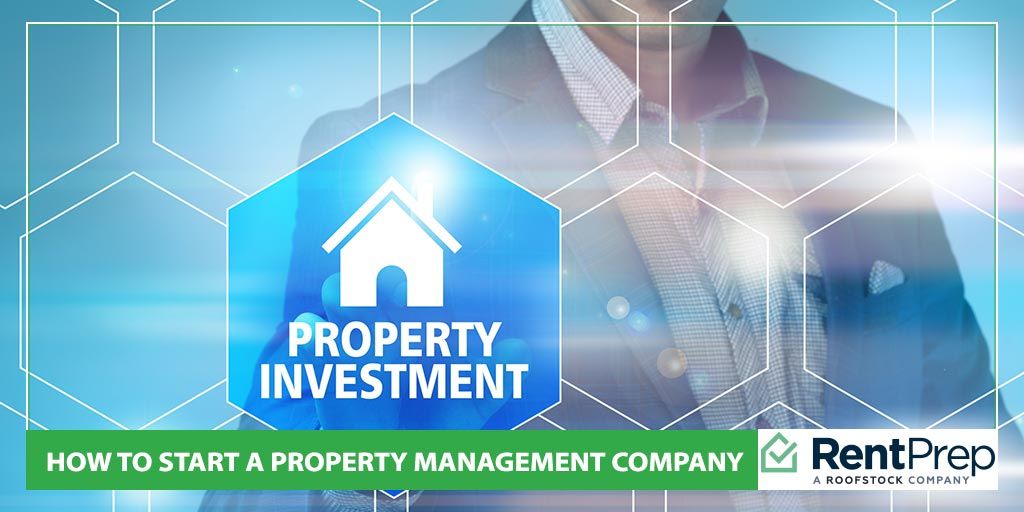
Property management is an essential business for many in the rental industry. Landlords and tenants work with property managers on both sides, making their role necessary. If you’re ready to learn how to start a property management company and get involved in this thriving market, today’s your day to know more.
Running a property management business challenges even experienced entrepreneurs. There are lots of moving parts to track. It takes time and detailed planning to get things right.
Follow along with our guide on how to open a property management company. Work through these eight steps to have your business structured in no time.
Table Of Contents On Starting A Property Management Company
Where do you begin when starting a company? Like all businesses, property management companies need to be built on a solid plan. Here’s how to start yours:
- What Is Property Management?
- How To Start A Property Management Company?
- Step 1: Research The Job, Area, And Competitors
- Step 2: Brand Up And Create A Business Plan
- Step 3: Set Up Financials, Insurance, Licensing, And Registered Business Names
- Step 4: Find Locations Online And On-The-Ground
- Step 5: Plan Payment Structures And Contacts
- Step 6: Accounting & Management Software
- Step 7: Keep Learning
- Property Management Business FAQs
- Ready To Start A Property Management Company?
What Is Property Management?

Property management is the process of overseeing residential or commercial rental properties. Depending on the type of housing available, it may also include student housing or community associations.
Property managers can also be the owners of the property, or they can be separate individuals. A property management company, however, runs the properties for rentals when the owner doesn’t have the time or skillset to do so. Instead, a property management company is hired to handle the necessary responsibilities.
Property Manager Responsibilities
What do those responsibilities include?
A property manager’s main goal is to take care of rental buildings and properties for their clients, the owners. They connect tenants to the owner by managing day-to-day activities, applications and leases, rent payments, and more, to ensure that everything runs smoothly throughout and between tenancy periods.
A property management company’s responsibilities may include the following:
- Marketing rental units
- Running open houses and property tours
- Collecting and reviewing tenant applications
- Signing leases
- Collecting rent
- Managing on-site maintenance
- Managing on-site landscaping and common area cleaning
- Conducting inspections
- Ensuring move-in/move-out dates
- Sending notices to tenants as needed
- … and so much more!
If you’ve worked as a landlord, you already know the wide variety of things that can pop up when managing rental properties. From burst pipes to tenants consistently late on rent, many problems must be solved.
The Cost Of Starting A Property Management Company
When moving into property management, you’ll want to consider the financial backing needed to support an entire company. Even if you start working independently, you can expect startup costs to be at least $2,000. This amount will cover insurance, licensing, equipment, and other essential expenses necessary to run the business.
As you grow your business, you can expect initial startup costs to maintain a property management company to range from $10,000 to $20,000, depending on the size of your starting operation.
How To Start A Property Management Company?
Setting up a property management company has a lot of overlap with starting any other company. From establishing a legal business entity to creating business plans, there are steps that every business owner needs to take. Beyond those basics, there are systematic steps that property managers can take to ensure their company is set up for success.
Step 1: Research The Job, Area, And Competitors

It’s important to get to know your local industry before you get too far into starting your company. If you’ve worked as a real estate agent or a landlord in the area, you’re likely already familiar with the rental companies and property management companies working nearby.
Still, in-depth research into how businesses function and succeed near you is a great idea. Start with the following:
- Who is hiring property managers
- What each property management company offers
- What type of pricing schedules are used
These factors will help you gain perspective on what to do, what to expect, and how to fill open niches in your local market.
Step 2: Brand Up And Create A Business Plan
Start with your branding. Think about a name that leaves a good impression without being too complicated, and build strong branding around that name. Register it with your state to ensure the name is available before moving forward.
Create a business plan for your company. Solid plans guide success, and you can set goals more appropriately when you know what the future may look like. Include your business structure, short- and long-term goals, and resources on hand in this document. Consider your business plan a living document that you will keep growing over time.
Step 3: Set Up Financials, Insurance, Licensing, And Registered Business Name
If you haven’t registered your business yet, it’s time to do so. Whether you set up a sole proprietorship, partnership, LLC, or corporation, you’ll need to complete the appropriate forms and registrations in your state and municipality before beginning to do business.
Set up a bank account for your business. Choose a bank that offers the most needed features, like a business credit card or separate accounts for security deposits.
Find out if you need to be licensed as a property manager in your state. Real estate licenses or broker licenses are often required. Ensure you are permitted before taking on any clients, to avoid legal troubles and fees.
Step 4: Find Locations Online And On The Ground
Find out where you will host your business online and on the ground. Find a location for your office or a shared workspace where you can operate from. Online, ensure you get the URLs and web hosting needed to advertise your business, connect with clients, and otherwise manage your company.
Step 5: Plan Payment Structures And Contacts
Work out your payment schedule.
How much money needs to come in to cover the cost of running your business? What are fair prices for your services, and how do your estimates compare with other property management companies in the area?
There are several fees to consider as you implement your business payment plan:
- Management fees: monthly fees charged to clients for management services; can be a flat rate or percentage-based
- Lease renewal fees: how much it will cost to renew tenancies
- Additional costs for advertising, special marketing deals, maintenance requests, and other services, which should also have specific pricing if they aren’t included in general management
Can you ensure these costs balance out in a profitable way? Your revenue depends on a blend of competitive pricing and profitable management. Run through scenarios, and remember that these can be adjusted.
Step 6: Accounting & Management Software
Investing in accounting and property management software, such as tenant screening options and rent collection management systems, will help your business function more effectively and efficiently. Don’t waste time doing everything by hand or recreating existing software.
The property management industry is booming, with many software options to try out. Consider where support will be helpful and utilize those services. Try maintenance portals and rent collection software as your starting tools.
To avoid combining too many systems, looking for an all-in-one solution may be a good choice.
Step 7: Keep Learning
Now that your business is ready to launch, it’s time to settle into the learning phase of running a property management business.
As a landlord or property manager, success in the rental market relies heavily on your ability to keep learning. Learning the latest trends, the best software, and the most valuable documents to have on hand will make your work more efficient.
Here at RentPrep, we know just how important this is. That’s why we’ve created a blog full of resources, including a complete bundle of template forms for property managers like you. Check it out today – and keep learning.
Property Management Business FAQs
Even after you’ve reviewed how to start a property management company or started your own, you will have questions. Here are the answers to the most commonly asked questions about property management.
Is property management a good business to get into?
Property management is a rapidly growing industry, and projections show that it will continue on this path for years to come. This means that getting into the business now is still a great move in the rental business. Even if local players already in the field have been there for years, there’s constant growth and more than enough business to go around.
Take this opportunity to get involved in a new market. Landlords with experience managing properties but ready to have less property ownership, in particular, can find success in this area. You already have the skills needed to get started in property management. Try it out, see how it goes, and move forward with this great career chance.
Do property managers have to be licensed in my state?
States require different types of licensure to work as a property manager. Here is the key breakdown of those requirements as of the time of writing.
- No license or certificate required:
- Vermont
- Massachusetts
- Maine
- Maryland
- Idaho
- Kansas (residential only)
- Property management license required:
- District of Columbia
- Montana
- Oregon (property management OR broker’s license required)
- South Carolina
- South Dakota
- Real estate broker’s license required:
- Alabama
- Alaska
- Arizona
- Arkansas
- California
- Colorado
- Connecticut
- Delaware
- Florida
- Georgia
- Hawaii
- Illinois
- Indiana
- Iowa
- Kentucky
- Louisiana
- Michigan
- Minnesota
- Mississippi
- Missouri
- Nebraska
- Nevada
- New Hampshire
- New Jersey
- New Mexico
- New York
- North Carolina
- North Dakota
- Ohio
- Oklahoma
- Pennsylvania
- Rhode Island
- Tennessee
- Texas
- Utah
- Virginia
- Washington
- West Virginia
- Wisconsin
- Wyoming
Thankfully, there are many programs available in the United States, both in person and online, where you can learn the foundations of being a property manager. These courses will cover critical topics including compliance and legal considerations.
How do you build a successful property management company?
Building a successful property management company primarily revolves around setting up the right foundations, which means you need to be a skilled property manager to succeed. There are specific skills that you must have or cultivate to find and guide success:
- Be proactive
- Stay involved
- Keep current on the latest industry knowledge
- Listen and communicate effectively
- Be resourceful
In addition to having these characteristics, you also need to be able to guide your team to hold the same standards. With talented individuals working on your side, it will be easier to create a successful property management company. Ideally, your staff (both full-time and contracted) will consist of the following individuals:
- Accountant
- Real estate attorney
- Contractors (HVAC, landscaping, locksmiths, etc.)
Depending on the size of your operation, you may also bring in more property managers, on-site security and staff, and others. When you’re first starting, however, your focus should be on building relationships with these three types of specialists, to ensure you have the support system needed to generate profit.
Another key point of success lies in the tools you have at your disposal. Software, in particular, can make or break your business. Think carefully about your needs as you develop your plan and invest in the following software if it will make your processes more efficient:
- Marketing tools
- Tenant screening tools
- Rent trackers
- Record-keeping tools
- Financial tools
- Maintenance request management tools
Why do property managers quit?
Burnout is the biggest reason property managers decide to get out of the field.
Property managers are often under immense amounts of stress. There are many moving parts to handle, and you can expect to be on call at nearly all hours of the day. This is particularly true when you start the business and rely primarily on your own abilities to succeed.
As your team grows, you may have more free time, but there will still be stress associated with your job. Problems are to be expected, and you must always be ready to handle them.
Regardless of the stress, many property managers who have been in the field for decades find the constant movement of the job engaging and exciting. If you enjoy learning new tasks, delegating work, and finding ways to solve problems on the fly, this is a great profession to pursue.
Ready To Start A Property Management Company?
Building your property management company with the right tools will set you up to grow successfully as you gain experience. Work through essential steps to ensure you have the best chance at succeeding:
- Check what licensure, fees, insurance, and other documentation are needed to do business as a property management company in your area.
- Utilize staff, third-party services, and software to support your work.
- Create strong relationships with tenants, landlords, and contractors in your area to build your business’s network.
You can succeed in property management, but it will take work. With the information gathered today, you can focus on overcoming obstacles rather than figuring out what to do next. Good luck – you’ll have your first client in no time.

